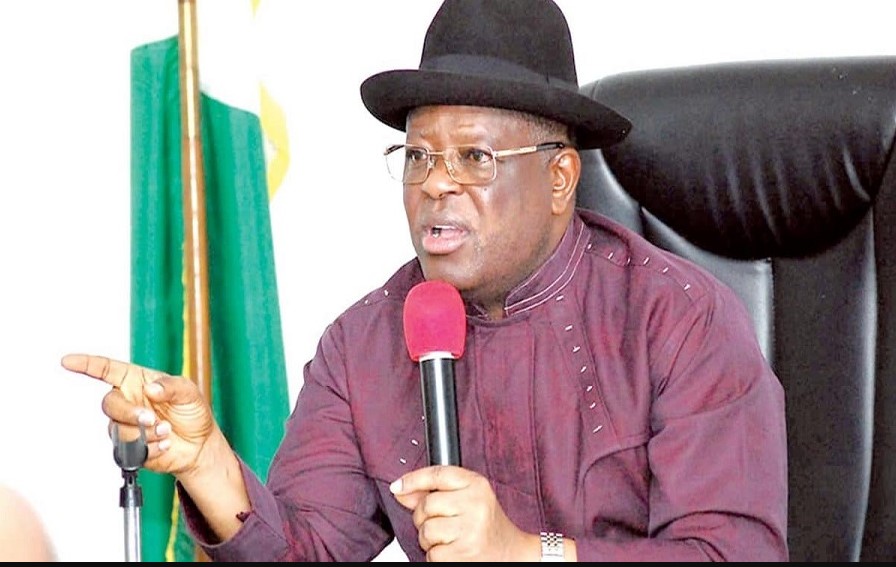In a bid to counter the escalating costs of the Abuja-Kaduna Road project, the Federal Government is contemplating collaborating with Dangote Industries Limited for the initial 40 kilometres under the Tax Credit scheme.
The project, initiated in 2018 with an initial budget of N165 billion, has seen costs surge to a staggering N1.35 trillion, an increase of about 718%.
Despite reservations expressed by the Minister of Works, Mr. David Umahi, over the project’s increased cost, he remains committed to completing the remaining section before the close of 2024.
Speaking during a meeting with directors of the ministry in Abuja on Thursday, Umahi highlighted the ministry’s dedication to overcoming contractual challenges and delivering the project for the benefit of Nigerians within the specified timeframe.
What the Minister said
Umahi said:
- “The ministry has some supervision work to be done tomorrow on that road and we will be advised on the real designs of the two sections.
- “Funding is also an issue because it is under the presidential development fund initiative got from looted funds. I have had to discuss with Mr president about the importance of the road for all Northerners.
- “But I won’t be able to go back to him until we re-scope it because the project was N165 billion before and a review brought the cost to N655 billion.
- “But today, the contractor is asking for N1.35 trillion and the government cannot afford it.
- “What they are asking is very wrong. So, they are looking at existing subgrade and see what we can do about it.
- “We are also looking at the first 40 kilometres to be constructed by Dangote under the Tax credit scheme to do it on concrete pavement, but I am very committed to completing that road this year. No matter what happens, that road will be done this year.”
FG to review existing road contracts by January ending
The minister also outlined the government’s intention to scrutinize contracts lacking substantial progress, addressing non-performing contractors as part of the Highway Development Management Initiative involving the private sector. He emphasized that the cost, scope, and technical aspects of these contracts would undergo a comprehensive review, to complete the assessment by the end of January.
Additionally, the minister disclosed his request for a 5% equity contribution or guarantee from contractors. This measure aims to secure a commitment from contractors genuinely devoted to the project.
Regarding the ministry’s primary focus areas, he highlighted that if granted a budget of N892 billion for operational activities, the ministry would ensure that every penny is utilized efficiently by December 2024.
Furthermore, the ongoing reconstruction of the expressway, currently overseen by Julius Berger, is financed under the presidential development fund initiative and is strategically divided into three sections.
